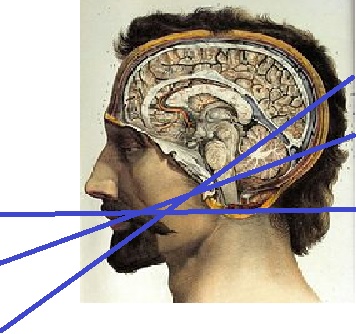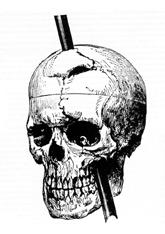The enemy boss just threw a spear at you, you tried animation cancelling to iframe and dodge the projectile spear but your finger slipped off the controller and now you've got a spear piercing your skull through the mouth and stuck on a wall, you are basically hanging off the spear like a sack of dead meat.
Your party members are dividing tasks to handle the situation, some of them are hooking the enemy boss with leashes and chains while others are shooting arrows and bolts at his knees, the party tank has climbed over the boss head and is stabbing his eyes repeatedly.
But this will only slow down the boss as he can regenerate really fast, and your party needs you in order to survive and kill the boss.
Meanwhile the party healer is resurrecting you, but they can't recreate neural pathways, they can only force your body to regenerate at incredible speeds.
The dead parts of your brain will be replaced with new neurons, and the blood loss will stop. Now that you gained back conscience you feel a lot lighter, overheating whilst also suffering immense thirst and hunger. The healing spell consumed a lot calories.
But you can't stop, the lives of your comrades depend on you, you have to fight as soon as you cross the line between death and the living.
So wake up party leader! We've got a giant troll to kill.
Question below
What is the likelihood of you remembering how to fight after your brain was pierced by a skull shattering projectile spear if it was regenerated?
For real, I need to know the mathematical odds, this is part of the game. If such data is impossible to guess/gather, please suggest some specific works about brain injury that could enlighten me.


